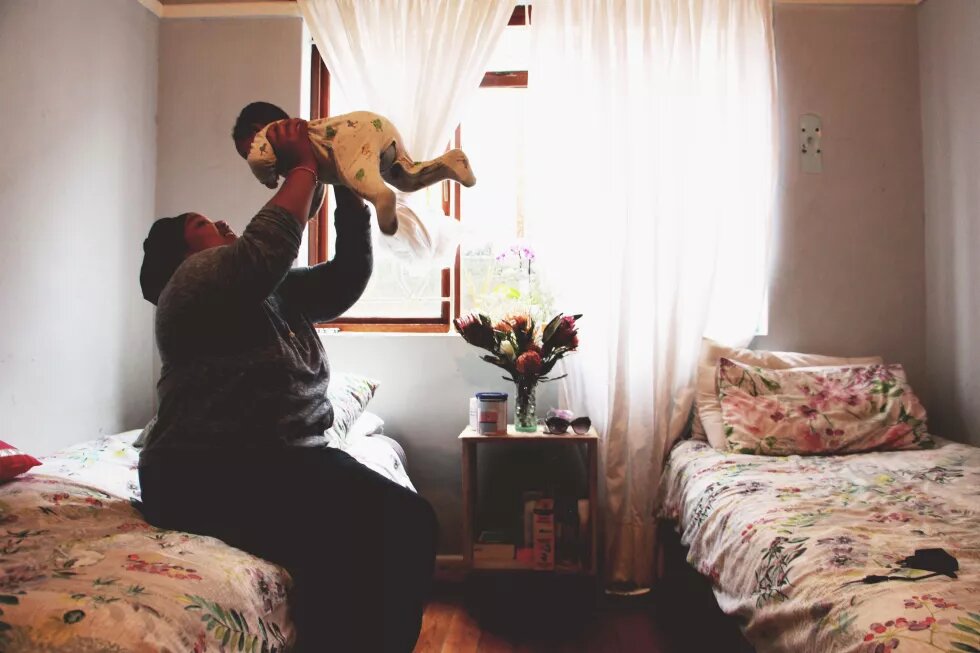While South Africans are stockpiling and preparing for a 21-day countrywide lockdown to curb the spread of the coronavirus, for some, isolating at home presents additional risks, on top of avoiding possible CoVid-19 infection. According to the National Shelter Movement of South Africa (NSM) one of its main concerns is the potential for increased violence against women and children, who may be forced to endure isolation with their abuser(s), during this unprecedented extended period of confinement.

While South Africans are stockpiling and preparing for a 21-day countrywide lockdown to curb the spread of the coronavirus, for some, isolating at home presents additional risks, on top of avoiding possible CoVid-19 infection. According to the National Shelter Movement of South Africa (NSM) one of its main concerns is the potential for increased violence against women and children, who may be forced to endure isolation with their abuser(s), during this unprecedented extended period of confinement. The NSM is an umbrella body representing 78 shelters for abused women and children across the country.
Head of the Executive of the NSM and Director of the Nisaa Institute for Women’s Development, Dr Zubeda Dangor says, “An unfortunate consequence of the severe CoVid-19 measures being implemented from midnight on Thursday, is an anticipated increase of Gender-Based Violence (GBV) rates during this time. While the lockdown is a much-needed and proven intervention, it is important that the most vulnerable of our society are not left to fend for themselves.”
Dangor says, “We cannot ignore the increased risks, especially for the victims of domestic violence and abuse, who will now not only feel, but will actually be more isolated than ever. However, since shelters are an essential service, these facilities WILL remain fully operational during the lockdown. Victims and survivors of domestic violence can be assured that there are resources available to assist during this high-risk period.” Bernadine Bachar, Chair of the Western Cape Women’s Shelter Movement and Director of the largest shelter in the province, Saartjie Baartman Centre for Women and Children (SBC), says that shelters have put measures in place to ensure shelter residents’ safety as far as possible.
To avoid risking infection and transmission to women in existing shelters, Western Cape Department of Social Development’s (DSD) CoVid-19 implementation measures has also designed one shelter to take in new clients for a period of two weeks. Following this isolation period, clients will be referred to other shelters. DSD, the South African Police Services (SAPS) or shelter social workers will deal with these referrals. However, this is dependent on provincial protocols in place.
Bachar adds, “All shelter staff in the Western Cape will also be required to follow the CoVid-19 measures, as laid out by the Department of Health, as strictly as possible. Staff are required to wear protective gear, perform ongoing health monitoring, and refer to the Department of Health for health assessment of residents, among other measures. But, there are challenges in procuring protective gear. We appeal to the public and corporate sector to please assist their local shelters. Shelters will require collaborative partnerships to ensure victim support services continue during lockdown so any donations are welcome.”
Although no victim will be left without support, NSM cautions that specific protective lock-down measures may differ at provincial and local level. NSM implores all provincial DSD’s to assist shelters in implementing safety measures for both clients and shelter staff. All shelters must refer to the Regulations, Annexure C, Form 1 to issue travel permits for their staff.
There are a number of contact centres available to support any women who experience any domestic abuse issues during the #coronavirus lockdown. The LifeLine SA Stop Gender Violence National Helpline is available on 0800 150 150. Women in danger can also contact the National DSD’s Gender-Based Violence Command Centre (GBVCC) on 0800 428 428. The Call Centre operates 24hr/7days-a-week, and is operated by qualified social workers who are responsible for taking calls and making call referrals.
Should you be unable to make a call, dial *120*7867# to contact the centre via a USSD, “Please Call Me” service. The centre can also be reached via a Skype line, by adding ‘Helpme GBV’ to your Skype contacts. This is particularly useful for members of the deaf community. Social workers in the Command Centre can also be reached by sending an SMS with the word ‘Help’ to 31531. The Centre will be particularly useful during this period of isolation, since they are able to refer calls directly to SAPS (10111) and field Social Workers, who will respond to victims of GBV. For more details, go to http://gbv.org.za/about-us/.
For anyone wanting more information specifically regarding shelter services for abused women and children, or to request assistance with referrals, or to offer support in any way, you can also reach out to any of the provincial representatives of the National Shelter Movement. For the Western Cape, contact Bernadine Bachar on 082 903 8739 or Joy Lange on 071 906 3949; in Mpumalanga, Fisani Mahlangu on 079 310 9633; KwaZulu-Natal, Sabera Timol on 072 446 3337; Free State, Sarah Lekale on 072 144 7171; Eastern Cape, 081 247 6056; North West, Rina van der Berg on 072 348 6526; Northern Cape, Rose Clair Adriaanse or Rosaline Bailey on 080 021 2321 or 073 888 8738 and for Gauteng, Rudo Muhasa on 083 684 7737 and Zubeda Dangor on 083 289 9818 (who is also able to assist with any related information).
ENDS
Issued by Natasha Adonis, on behalf of the NSM. For more information, contact Natasha on 0797-999-654 or mail Natasha.adonis.comms@gmail.com.